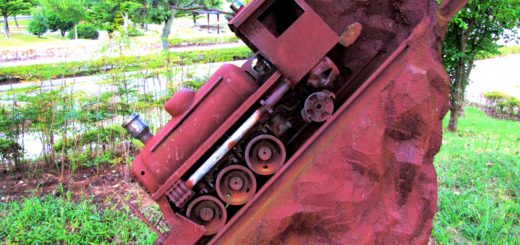Democracy
Oligarchs play demagogues to cajole and placate the ill-informed, safety-and-comfort-obsessed majority by inciting distrust and hatred of the genuine best men — the sober, non-tribal, intellectually courageous lovers of goodness and beauty. Together, these two groups, the demagoguing oligarchs and the ignorant majority, forge a tyranny, operated by and for the oligarchs, but advertised as being operated by and for the safety-and-comfort-obsessed majority. This is the practical reality of democracy, and always was. Democracy could never be anything else in practice, for the simple reason that the majority of mankind, the demos, could never orchestrate and manage their own society for a month without breaking into faction and disarray, and eventually either collapsing into the state of nature or crying out for a “leader” to save them from themselves.
In other words, democracy as it really exists is merely a propagandist’s name for oligarchy, which in turn is merely a de facto subset of tyranny. This is why few serious philosophers in the ancient world were defenders of democracy. Interestingly, almost the only important Greek thinker who did favor democracy outright was Democritus, one of the founders of atomism, for whom — as with all materialists — the standard of the blessed life (eudaimonia) was nothing but the absence of pain, i.e., physical comfort and the alleviation of fear.
The first modern thinker to lay the groundwork for a proper intellectual defense of democracy — although he was far from a democrat himself — was Machiavelli, who rejected the concept of noble statesmanship outright, teaching that the most successful ruler (the “winner,” as some would put it today) would pursue a strategic alliance with the ignorant and manipulable majority, as a means of protecting himself from the threat posed by the society’s higher men, that small minority motivated by honor, reason, and the good. The “common man,” driven by his overwhelming priorities of self-preservation and comfort, would be the self-seeking powermonger’s strongest fortress in his perpetual war against reason and honor.
During the past fifteen months, the entire democratic world has succumbed to the worst extremes of the passion that has always been the primary source of democracy itself — fear of personal danger. The vast majority of mankind, the ignorant and self-absorbed, seeing no meaning in life higher than their own pleasure, no good more valuable than their own security, are inevitably prone to excesses of terror at anything perceived as a threat to their immediate safety and comfort. This tendency is a moral weakness, in that it reveals a fatal lack of the character — the sense of honor — that the ancients saw as almost definitive of mature humanity. Theoretically ennobled as “the self-preservation instinct” by early modern political philosophy, this excessive self-concern, rooted in a certain materialistic pettiness, was judged the psychological source of representative government. And yet this same tendency or “instinct” carries the seed of democracy’s deterioration into tyranny, as thinkers from Plato to Tocqueville explained with perfect accuracy. There is almost nothing most men, taken as individuals, would not sacrifice in the name of protecting their comfort — if one could persuade them the danger was real. This is where modern political thought depended so heavily, perhaps unrealistically, on the majority’s capacity for rational deliberation and sober examination of the facts. That is to say, the early moderns assumed that the instinct for self-preservation would naturally enliven an equally strong inclination to self-determination. In truth, however, quite the contrary has turned out to be the case. To the extent that mankind has succumbed to basic self-preservation as the primary political drive, it has likewise gradually relinquished the will to independent adulthood in favor of “whatever will keep me safe.” Hindsight is twenty-twenty, but perhaps it should have been obvious that the will to self-determination would survive only as long as it was still perceived as useful in the fight against amoral man’s overriding passion, fear of death, which is what the “self-preservation instinct” reduces to in the heart of one whose reason has gone numb. Thus, to the extent that a man obsessed with security becomes convinced his well-being requires the surrender of self-determination, he will unhesitatingly surrender it.
This dynamic — the one Tocqueville spelled out in his chillingly prescient imagination of what he called soft despotism — leads to spiritual submission in the soul of an individual so overwhelmed with materialist self-concern. But the effect of this dynamic on a large group of men who have effectively been melted into a crowd — every crowd, as I often say, being dumber than its dumbest member, and also, as I may now add, more cowardly than its most cowardly member — is infinitely more comprehensive and immediate than its effect on an individual. As we have seen with gratuitous clarity over the past few decades of growing collectivism, and with brutal finality over the past year, people who, through sentimental indoctrination and relentless tribal drumming, have lost all contact with their nobler private instincts — to self-government, self-development, self-reliance — and allowed themselves to be absorbed into a compliant sub-human sludge, “the masses,” will not only submit themselves to any form of diminution in the name of protecting themselves from abstract and imaginary dangers they have been ordered to believe in by their leaders, but will even beg for those demeaning controls, and express collective hatred and rejection for anyone who dares to stand up and speak truth to power. In today’s climate, the little boy who dares to object that the emperor is naked would instantly be swarmed, silenced, and subjected to a public flogging for his transgression. “Don’t you care about others?” our fear-prodded crowd would scream, shaming the non-compliant boy for daring to care about truth.
The awareness of the dangers of resting a political project upon the human majority’s excessive prioritizing of comfort, pleasure, and security was the premise that led the great philosophers of liberty, and later the great statesmen of liberty, to propose the middle ground of a constitutional republic — a civil society in which both the self-preservational excesses of the demos and the self-serving lusts of the Machiavellian tyrannical souls would be moderated and restrained by rational and inflexible limits on power, set firmly in the political foundations. In practice, however, a constitutional republic, at least beyond the lifetimes of its founding statesmen, is merely the impulse to democratic tyranny constrained by parchment, oligarchic aspirations tethered by the moral injunctions of a few wise men, now dead. Surely this sort of figurative restraint will be no match, in the long run, for the marriage of power lust and irrational fear that leads to that special form of demagogic, propaganda-fostered representative tyranny — sometimes misrepresented as “the tyranny of the majority” — into which democracy devolves once detached from the habits and spirit of moderation and rational self-determination. It becomes so detached through the machinations of oligarchs exploiting the weakest natural inclinations of the majority, namely the excessive fear of death and the corresponding will to comfort and security at any cost.


